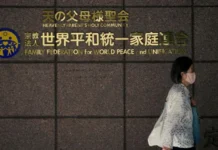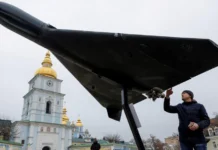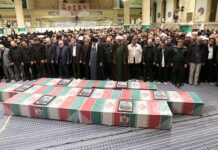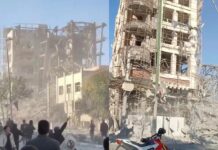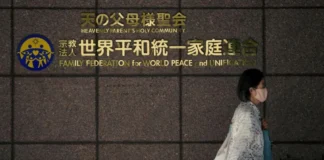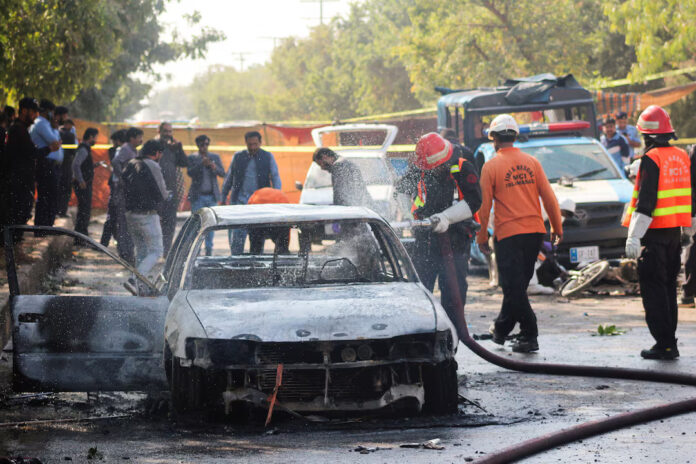
A suicide bombing outside a courthouse in Pakistan’s capital, Islamabad, on Tuesday killed at least 12 people and wounded 27 others, marking the first major attack on civilians in the city in a decade and sharply escalating regional tensions.
Pakistani officials swiftly blamed militants based in neighboring Afghanistan and accused Kabul of complicity in the assault.
Defence Minister Khawaja Muhammad Asif declared that the country was now in a “state of war,” warning that Pakistan would retaliate if Afghan authorities failed to curb militant activity.
“Bringing this war to Islamabad is a message from Kabul, to which Pakistan has the full power to respond,” Asif said.
The explosion occurred around lunchtime when a suicide bomber attempted to enter a district court complex and detonated his explosives near a police vehicle after failing to breach the building’s entrance.
Graphic images aired on local television showed bloodied victims, damaged cars, and a police van engulfed in flames.
Interior Minister Mohsin Naqvi said preliminary investigations indicated that the bomber had been in contact with handlers in Afghanistan during the attack. “Afghanistan has to stop them.
In case of failure, we will take care of those terrorists ourselves,” he warned, describing the strike as carrying “a lot of messages.”
The Taliban administration in Kabul issued a statement condemning the attack and expressing “deep sorrow,” but denied allowing Afghan territory to be used for operations against other countries.
India, also implicated by Pakistani ministers, dismissed Islamabad’s accusations as “baseless and unfounded.”
Tuesday’s attack followed a deadly explosion in New Delhi a day earlier that killed eight people, further stoking fears of coordinated regional violence.
Analysts said the Islamabad bombing, coupled with a suicide assault on a military-run school in northwest Pakistan the previous day, suggested militants were seeking to sow panic and retaliate for recent Pakistani airstrikes inside Afghanistan.
“These targets are clearly an attempt to spread panic in society,” said retired Lieutenant General Muhammad Saeed. “The terrorists have a huge country supporting them and another providing them space.”
Abdul Basit, a regional security expert at Singapore’s S. Rajaratnam School of International Studies, said new militant factions may have emerged to give the Pakistani Taliban, or TTP, plausible deniability.
“They are sending a signal that if there are strikes in Kabul, Islamabad will not be safe,” he said.
The TTP, Pakistan’s main jihadist group, denied responsibility for the bombing, which comes amid worsening ties between Islamabad, Kabul, and New Delhi following cross-border skirmishes, failed peace talks, and mutual accusations of supporting terrorism.
Security forces have been placed on high alert nationwide as investigators probe who orchestrated the deadliest attack in Pakistan’s capital since 2014.
Source: Reuters
Written By Rodney Mbua









